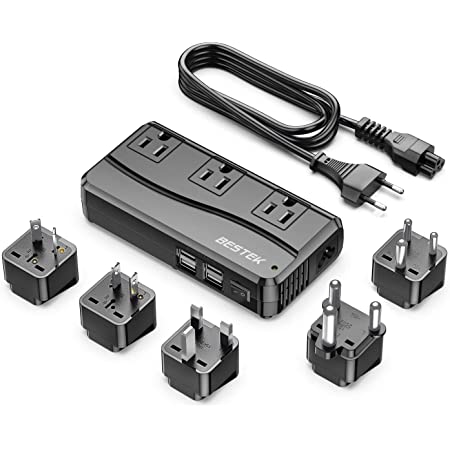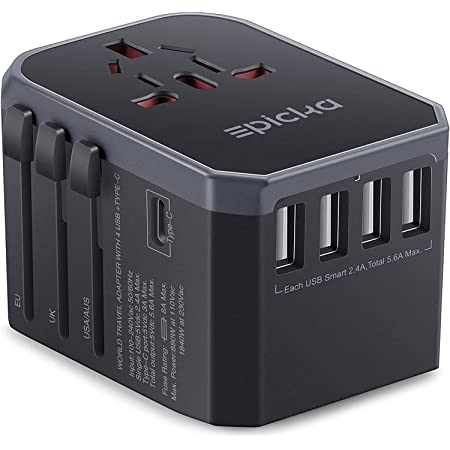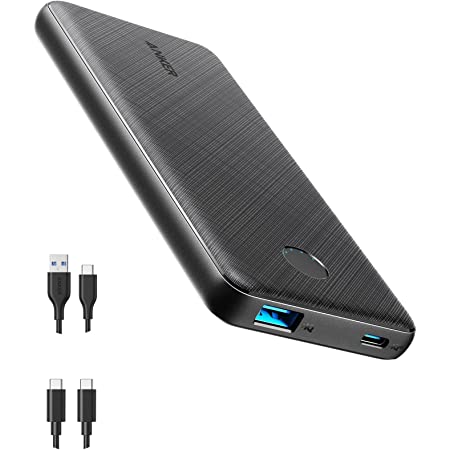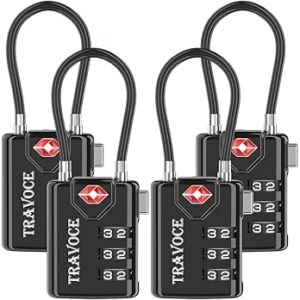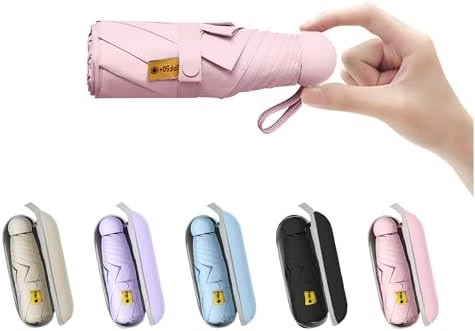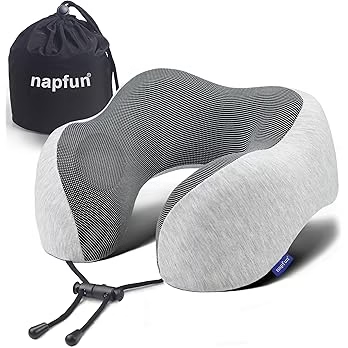Plug For Moldova: What You Need To Know
What is the plug for Moldova? Before you travel, check the information below to make sure your electronic devices are compatible with the outlet type and voltage.
Electrical Summary
Plug Compatibility: Type C, Type F
Voltage: 220V – 240V
Frequency: 50 Hz
Type C

Type F
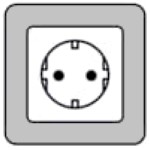
Can North Americans use Electronics in Moldova without an Adapter?
No! North Americans will need an adapter for the outlets and a transformer for the voltage when traveling to Moldova. North Americans device plugs will not work with the outlet types in Moldova. Also, the voltage in Moldova is different from North American voltages.
Can Europeans use Electronics in Moldova without an adapter?
Yes! Europeans do not need a travel adapter or transformer when traveling to Moldova. Most device plugs will work with the outlet types in Moldova. Also, the voltage in Moldova is the same as in Europe.
What Outlet does Moldova Use?
Type C

Type C plug sockets are used in Europe, Africa and Asia. They have two round pins and no grounding pin. These plugs are typically used with devices that have a voltage of 220-240V. This outlet is rated for 2.5 amps. Plug Type E, and Type F are compatible with this socket. All other plug types will need an adapter.
Type F

Type F electrical plug sockets are used in Germany, Spain, Italy and some parts of Africa. They have two round pins and a grounding pin. These outlets are typically used with devices that have a voltage of 220-240V. This outlet is rated for 16 amps. Plug Type C and Type E are compatible with this socket. All other plug types will need an adapter.
Recommended Products:
Should I use a VPN when traveling?
YES! Using a VPN when traveling is highly recommended to protect your online privacy and security. Public Wi-Fi networks in hotels, airports, and cafés are often unsecured, making you vulnerable to hackers and data theft. A VPN encrypts your internet connection, safeguarding sensitive information like passwords and banking details. It also allows you to bypass geo-restrictions, granting access to streaming services and websites that may be blocked in certain countries. Additionally, a VPN helps prevent government surveillance and ISP tracking. For a seamless and secure browsing experience while traveling, choose a reliable VPN with fast speeds and strong encryption.
Moldova Travel Essentials:
Is it safe to drink water in Moldova?
In general, tap water in Moldova is not considered safe to drink without prior treatment. According to the World Health Organization (WHO), Moldova has a relatively outdated water supply system, and the drinking water may be contaminated with bacteria, viruses, and other harmful substances.
The water treatment processes in Moldova may not be able to remove all contaminants, and the distribution system may also contribute to the deterioration of the water quality. As a result, it is recommended to boil the tap water before drinking it or to use a water filtration system.
Alternatively, you can also purchase bottled water, which is widely available in Moldova. However, make sure that the bottle is sealed and has not been refilled, as some unscrupulous vendors may refill old bottles with tap water to sell them as new.
If you are traveling to Moldova, it is recommended to take the necessary precautions to ensure that the water you drink is safe. You can also consult with your accommodation provider or a local expert for advice on the best ways to ensure safe drinking water.
We recommend always packing a filtered water bottle when traveling!
Travel Essentials
Be sure to check our list of travel essentials before your trip!
Should I get travel insurance when traveling to Moldova?
It is generally recommended to get travel insurance when traveling to a different country. Travel insurance can provide financial protection and peace of mind in case of unexpected events, such as medical emergencies, trip cancellations, lost or stolen baggage, or other travel-related mishaps.
Travel insurance can cover various expenses related to your trip, such as medical expenses, emergency medical transportation, trip cancellation or interruption, lost or stolen baggage or personal belongings, and other travel-related expenses.
Before purchasing travel insurance, it’s important to carefully review the policy details, including the coverage limits, exclusions, and any applicable deductibles or copays. You should also make sure that the policy covers any activities or destinations that you plan to participate in or visit during your trip. Click here to price Travel Insurance for Moldova
Travel Summary
Moldova is also home to many historic sites, including the stunning Orheiul Vechi Monastery, the Cricova underground wine city, and the Saharna Monastery. Visitors can explore museums, art galleries, and cultural events, as well as enjoy the country’s beautiful natural landscapes of parks, forests, and rolling hills.
Moldova is known for its delicious cuisine, with a range of traditional dishes such as mamaliga (polenta), sarmale (stuffed cabbage rolls), and placinte (stuffed pastries), as well as a thriving wine industry. The country’s wine culture is an important part of daily life, and visitors can enjoy a glass of local wine in many bars and restaurants.
Moldova is a welcoming destination for travelers, with a mix of Moldovan and Romanian cultures and languages. The official language is Romanian, but Russian and English are also widely spoken. The country has a growing tourism infrastructure, with a range of accommodations and activities to suit all budgets and interests.
Overall, Moldova is a must-visit destination for anyone interested in history, culture, and wine. With its stunning monuments, delicious food, and welcoming locals, Moldova offers a unique and unforgettable travel experience.
Traveling to another country? Check out our Countries page for more info on countries like Belarus, Georgia, Montenegro, Romania, Bulgaria, Lithuania
